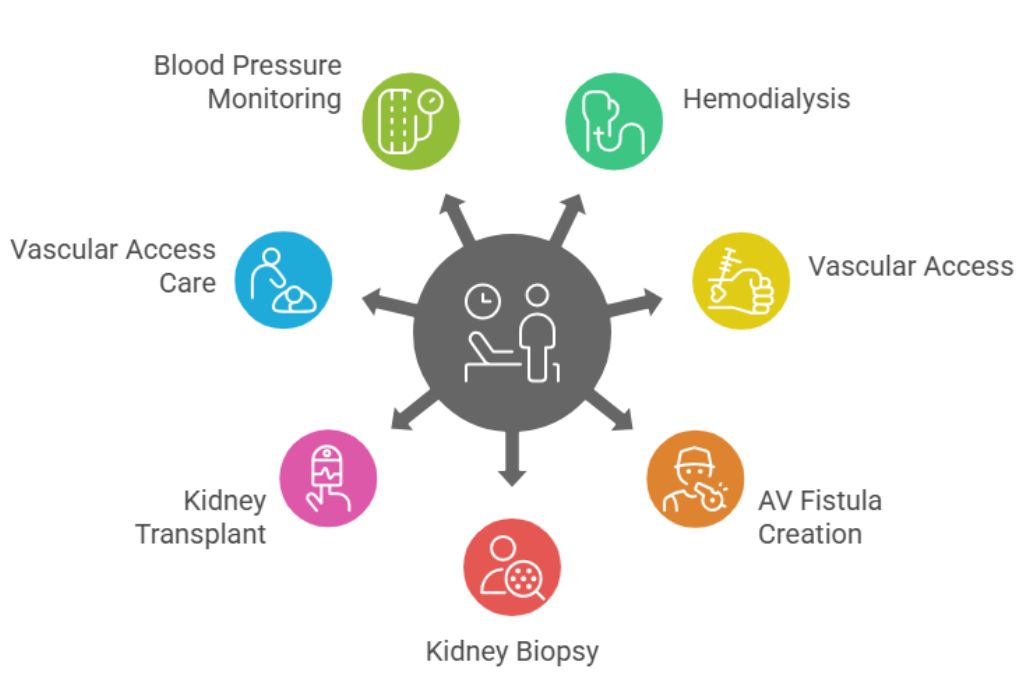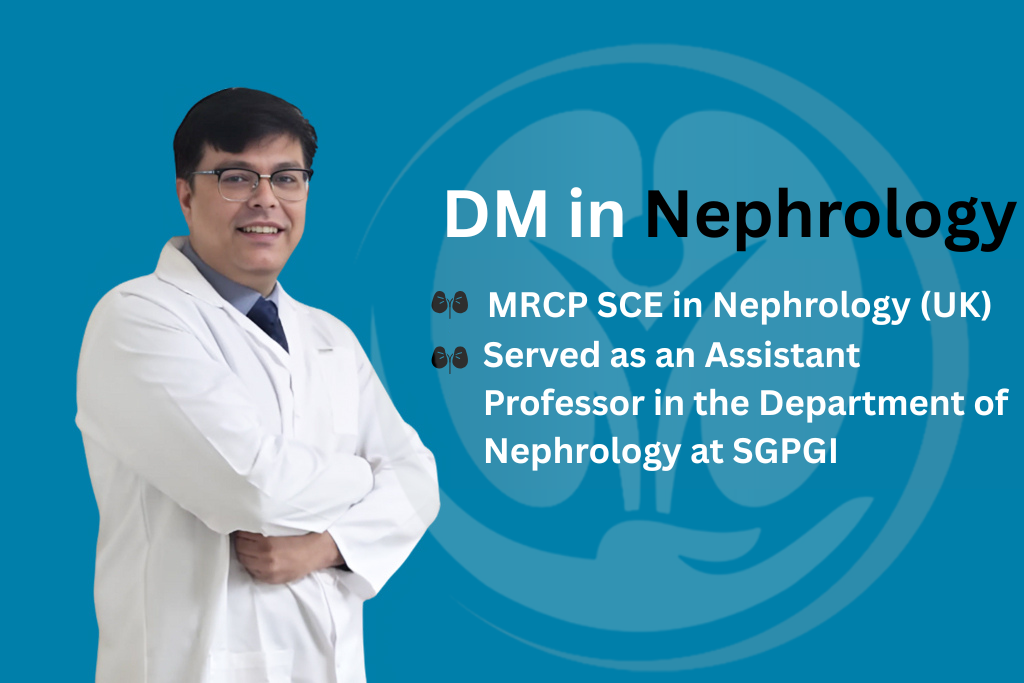What is Renal Hypertension?
Renal hypertension occurs when high blood pressure is directly linked to kidney dysfunction or
abnormalities
in the blood vessels supplying the kidneys. The kidneys play a critical role in regulating blood
pressure by
controlling fluid balance and releasing hormones like renin, which influences blood vessel constriction.
When
kidney function or blood flow is impaired, it can lead to elevated blood pressure, creating a cycle that
further damages the kidneys.
As a kidney specialist doctor in Gorakhpur, Dr. Arpit Srivastava focuses on early diagnosis and tailored
interventions to manage renal hypertension, helping patients maintain healthy blood pressure and protect
kidney function.
+91-7054357996
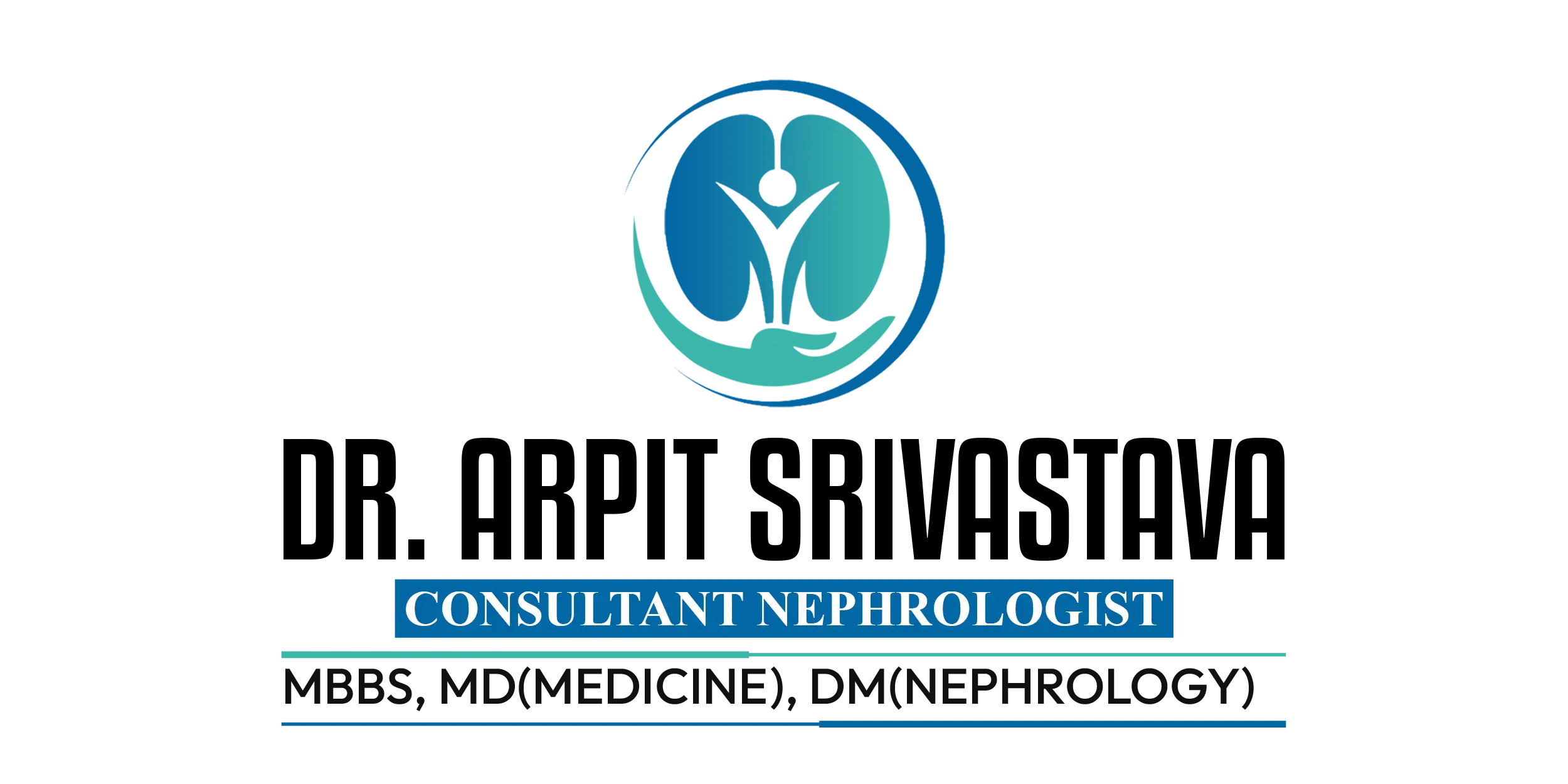
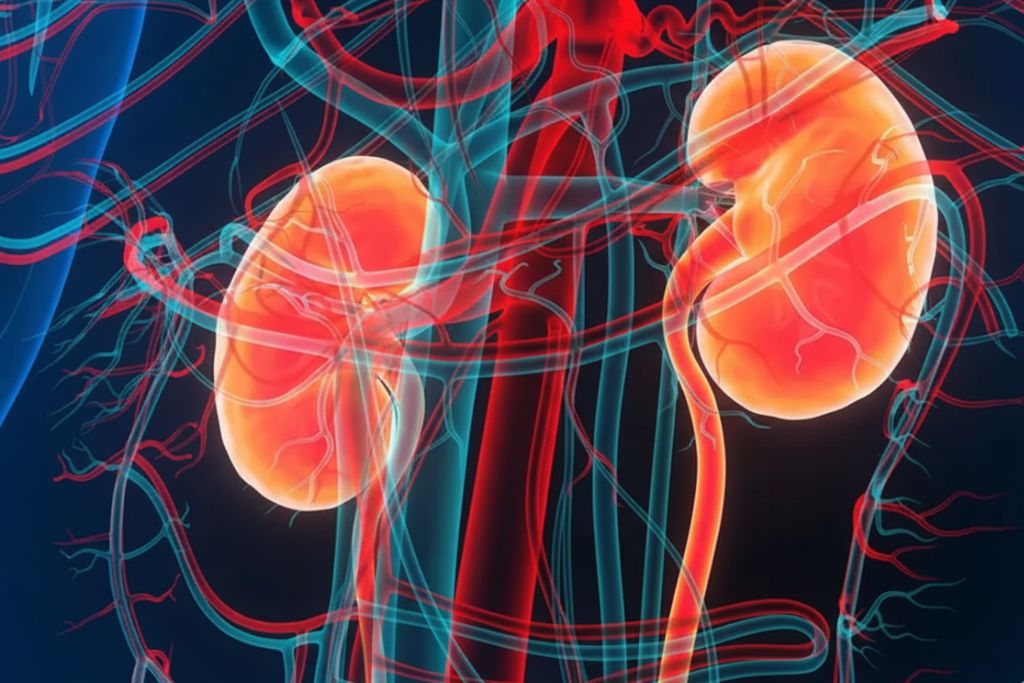
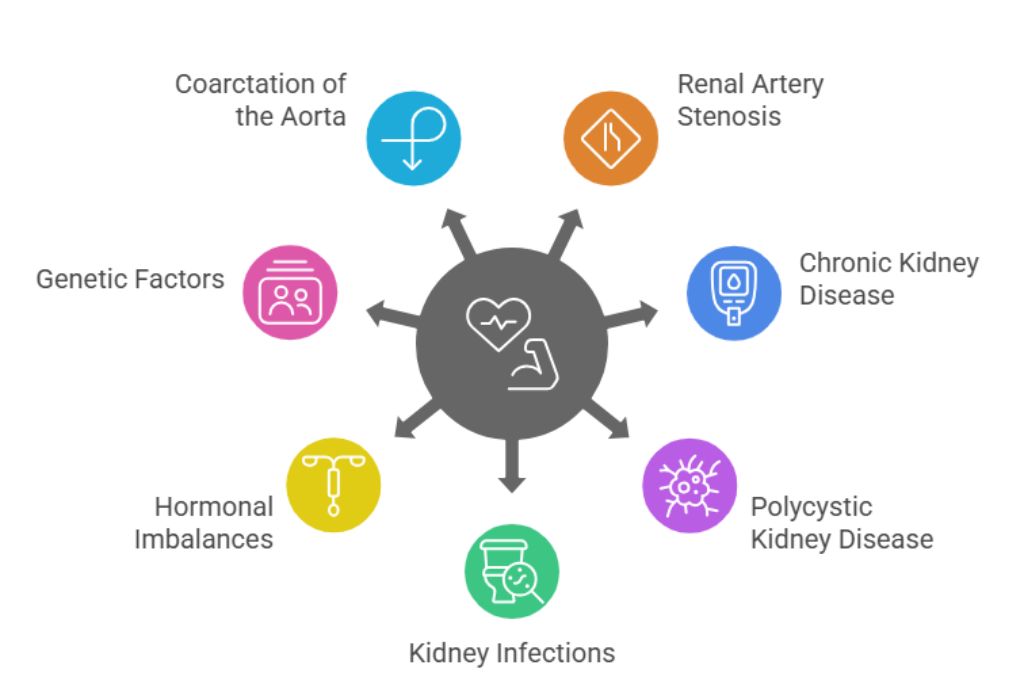
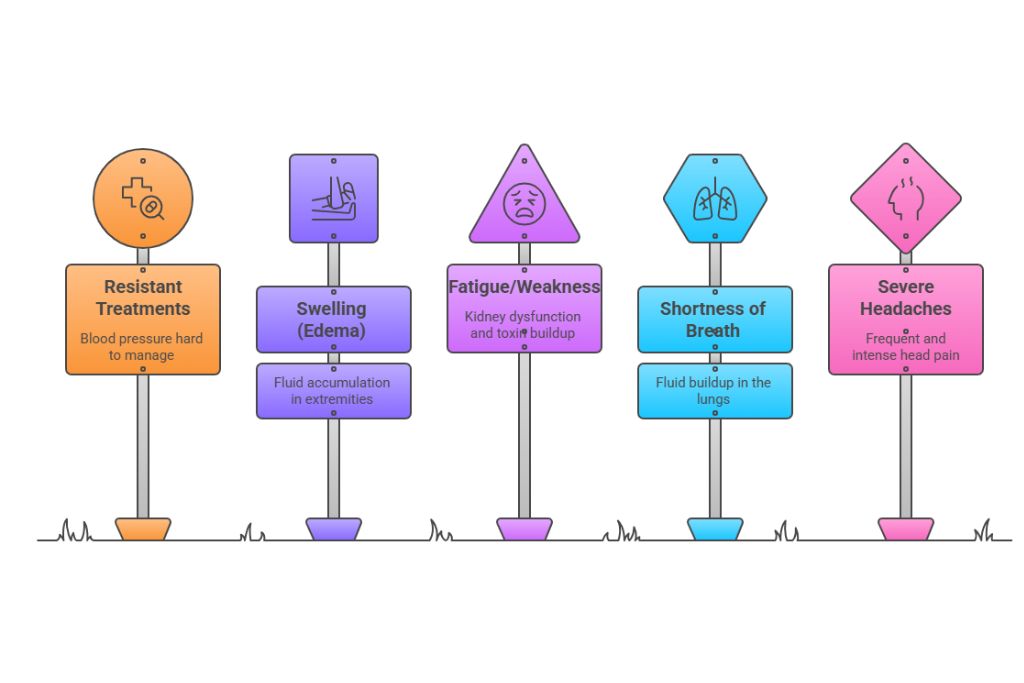
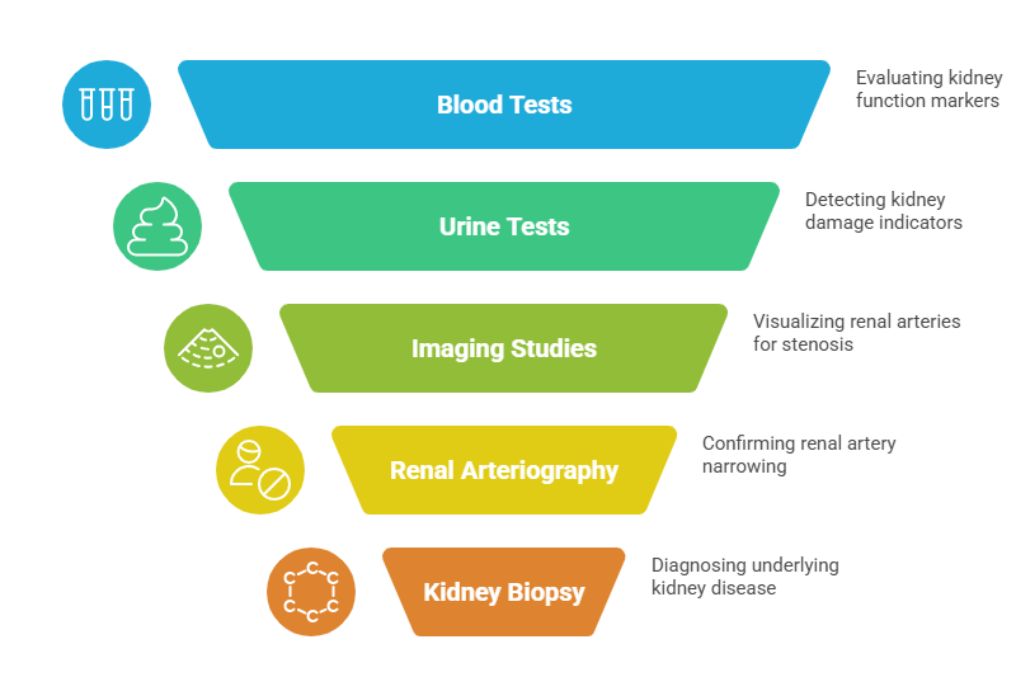


.png)
